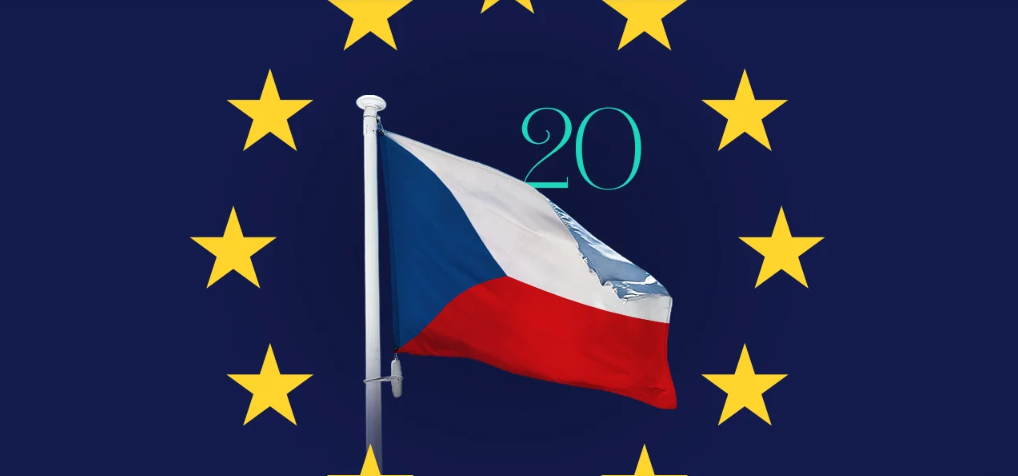
20 years since joining the EU
Twenty years since joining the European Union, the Czech Republic has undergone significant transformations and opportunities. Over this period, the country’s economy, labor market, demographic composition, and position in Europe have evolved. EU membership has allowed Czech citizens to travel, study, and work in other member states, once considered unthinkable but now commonplace.
What has changed?
Tangible changes include an increase in the country’s GDP from 80% to 91% of the EU average since 2004, along with residential property prices rising from 62% to 71% of the EU average. The gross monthly minimum wage has also risen from 6,700 CZK to 18,900 CZK, although wage growth has not kept pace with rising prices. Additionally, over 400,000 Czechs have studied in other EU countries.
Despite these positive developments, public debt has significantly increased since EU accession, rising from 28% to 44% of total GDP. Employment has been a longstanding strength of the Czech Republic, further bolstered by EU membership, with the employment rate among 15-64-year-olds surpassing 75% from two-thirds in 2004, and unemployment decreasing from 9.7% to just over 4%.
The value of Czech labor, or labor productivity, has also increased significantly, with hourly wages more than doubling. EU membership has made work more attractive for third-country nationals, with over a million foreigners working in the Czech Republic by 2023, over 23% of whom hold highly skilled positions.
Furthermore, EU accession has opened borders for both those wishing to move to the Czech Republic and Czech citizens seeking to explore other EU countries. Since joining the EU, numerous opportunities have arisen for Czech youth to study abroad, with over 410,000 participating in the Erasmus program. Similarly, over 450,000 non-Czech European students have come to the Czech Republic through Erasmus.
Focus on the international scene
Internationally, the Czech Republic’s image has solidified since joining the EU. However, tensions with the EU have arisen, particularly regarding disagreements over aspects of EU immigration agreements and environmental regulations impacting the domestic automotive industry. Additionally, there is ongoing debate regarding the adoption of the euro.
Despite challenges, the Czech Republic has made significant strides over the past 20 years. While criticisms exist, the relationship between the EU and the Czech Republic is not without flaws, especially concerning legal matters. In conclusion, the Czech Republic’s EU accession has brought about a period of significant transformation and opportunity. While challenges such as immigration, environmental changes, and euro adoption have tested the relationship with the EU, progress and development have characterized the Czech Republic’s journey within the EU. Looking ahead, it will be crucial to address remaining challenges and further strengthen cooperation and partnership with the EU while preserving national interests and legislative sovereignty.
Sources: https://www.expats.cz/




